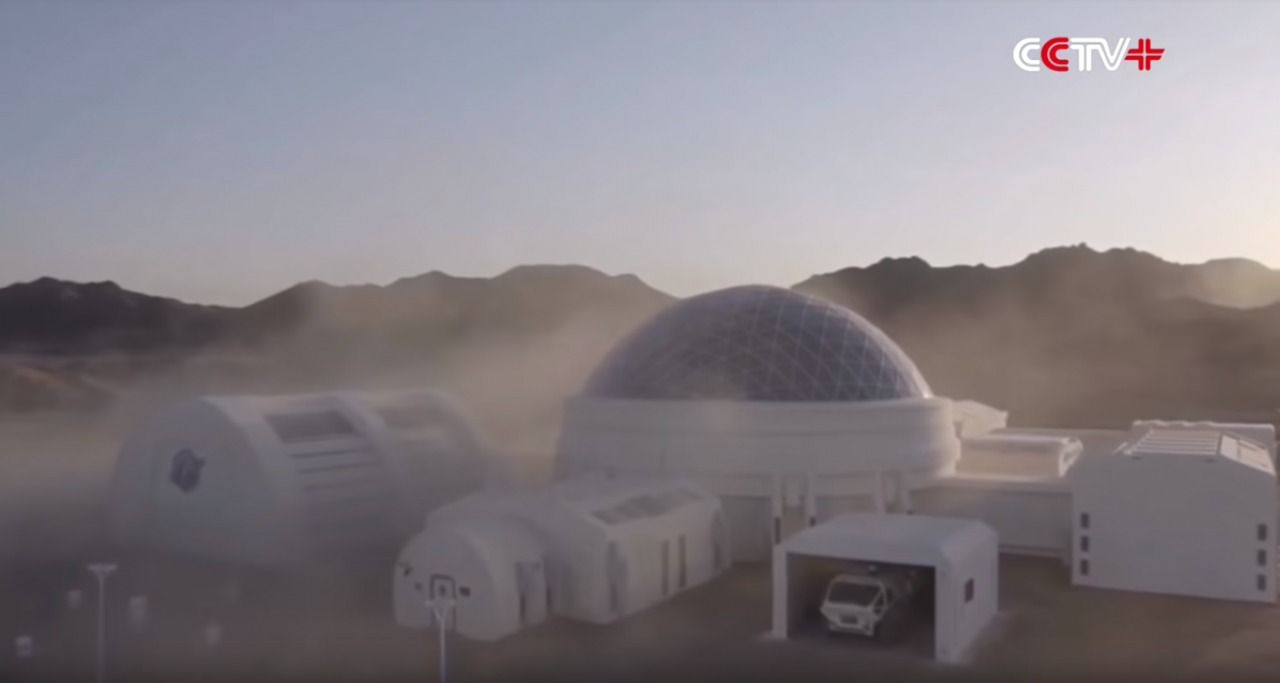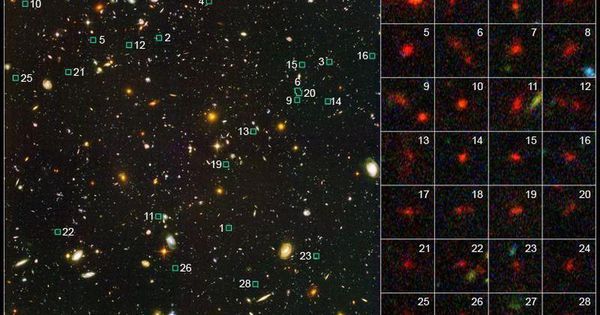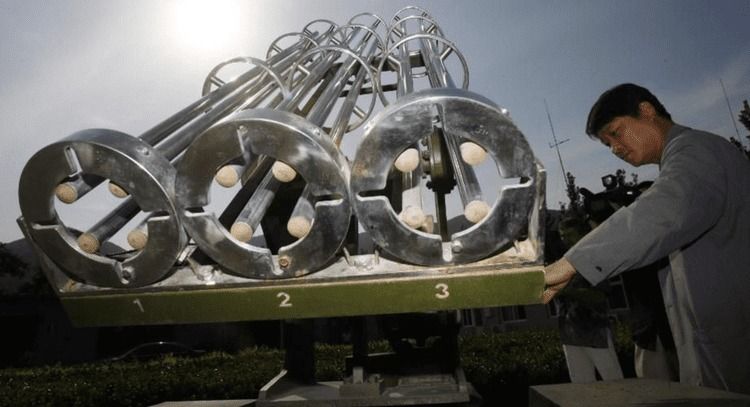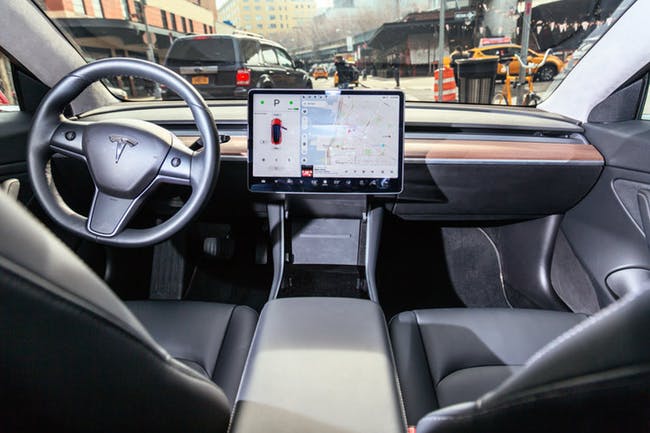Page 9394
Oct 15, 2018
Geoengineering will happen, China controlling rain across Tibet
Posted by Bill Kemp in category: engineering
The initiation of geoengineering will not involve a global public debate or vote.
Do not bother having debates about if or will we use geoengineering. The best thing is to work out the best combination of approaches to make it work the best way possible and minimize side effects. We will probably end up learning a fair bit after we start implementing.
China controls weather and will not blink before starting geoengineering when they think it is needed.
Continue reading “Geoengineering will happen, China controlling rain across Tibet” »
Oct 15, 2018
Moons of moons could exist, and scientists call them ‘moonmoons’
Posted by Michael Lance in category: space
Oct 15, 2018
The Potential of Thymus Regeneration
Posted by Steve Hill in categories: biotech/medical, life extension

Intervene Immune is a company focused on the age-related decline of the immune system, which is known as immunosenescence. Here, Bobby Brooke, CEO of Intervene Immune, discusses the clinical potential of regenerating the thymus as a means of reversing age-related immune system decline.
Earlier this year, we hosted the Ending Age-Related Diseases 2018 conference at the Cooper Union, New York City. This was a conference designed to bring together the best in the aging research and biotech investment worlds and saw a range of industry experts sharing their insights.
Oct 15, 2018
The state of the Early Universe: The beginning was fluid – Niels Bohr Institute — University of Copenhagen
Posted by Xavier Rosseel in category: particle physics
The particle physicists at the Niels Bohr Institute have obtained new results, working with the LHC, replacing the lead-ions, usually used for collisions, with Xenon-ions. Xenon is a “smaller” atom with fewer nucleons in its nucleus. When colliding ions, the scientists create a fireball that recreates the initial conditions of the universe at temperatures in excess of several thousand billion degrees. In contrast to the Universe, the lifetime of the droplets of QGP produced in the laboratory is ultra short, a fraction of a second (In technical terms, only about 10-22 seconds). Under these conditions the density of quarks and gluons is very large and a special state of matter is formed in which quarks and gluons are quasi-free (dubbed the strongly interacting QGP). The experiments reveal that the primordial matter, the instant before atoms formed, behaves like a liquid that can be described in terms of hydrodynamics.
How to approach “the moment of creation”
“One of the challenges we are facing is that, in heavy ion collisions, only the information of the final state of the many particles which are detected by the experiments are directly available – but we want to know what happened in the beginning of the collision and first few moments afterwards”, You Zhou, Postdoc in the research group Experimental Subatomic Physics at the Niels Bohr Institute, explains. “We have developed new and powerful tools to investigate the properties of the small droplet of QGP (early universe) that we create in the experiments”. They rely on studying the spatial distribution of the many thousands of particles that emerge from the collisions when the quarks and gluons have been trapped into the particles that the Universe consists of today. This reflects not only the initial geometry of the collision, but is sensitive to the properties of the QGP. It can be viewed as a hydrodynamical flow.
Oct 15, 2018
Artificial intelligence aids automatic monitoring of single molecules in cells
Posted by Xavier Rosseel in categories: biotech/medical, robotics/AI

To understand the mechanisms by which molecules act in cells, or the effects of drugs on them, it would be ideal to be able to track individual molecules, including where in the cell they are located and what modifications they undergo when conditions in the cell change. However, this has proven difficult with existing technologies, particularly given the amount of time required to perform such monitoring.
A research team centered at Osaka University, in collaboration with RIKEN, has developed a system that can overcome these difficulties by automatically searching for, focusing on, imaging, and tracking single molecules within living cells. The team showed that this approach could analyze hundreds of thousands of single molecules in hundreds of cells in a short period, providing reliable data on the status and dynamics of molecules of interest.
Continue reading “Artificial intelligence aids automatic monitoring of single molecules in cells” »
Oct 15, 2018
A first look at China’s Mars simulation base out in the Gobi Desert
Posted by Klaus Baldauf in categories: climatology, space

China’s first Mars simulation base opened to the press on Friday in Gansu Province in the northwest of the country, providing a glimpse of the project mainly intended to popularise space among youth.
The base is located in the Gobi Desert, 40 kilometres away from the downtown area of Jinchang, a city in Gansu. The natural features, landscape and climate are being described as resembling Martian conditions.
Continue reading “A first look at China’s Mars simulation base out in the Gobi Desert” »
Oct 15, 2018
Food you’ve never heard of could end hunger
Posted by Derick Lee in categories: existential risks, finance, food
Crop Trust guards about one million varieties of seeds in a mountain in Svalbard, Norway. The doomsday vault is the back-up for 1,700 seed banks worldwide, in the event of some future apocalypse.
The term “conservation” may bring wildlife or land preservation to mind. But what about the food we eat?
According to Crop Trust, an international organization working to safeguard agriculture, we only use about 1 percent of available crops to fuel our diets. That could put the future of our food system at risk.
Continue reading “Food you’ve never heard of could end hunger” »
Oct 15, 2018
Magic Leap’s new AI assistant looks alarmingly human
Posted by Klaus Baldauf in categories: augmented reality, robotics/AI
The tech world’s latest virtual assistant looks so realistic, you might mistake her for an actual human.
Apple has Siri, and Amazon has Alexa. But the lifelikeness of both are dwarfed by Mica: a prototype that Magic Leap, a highly regarded augmented-reality startup, unveiled at its conference Wednesday.
Mica isn’t just a voice assistant. She’s something you can actually see if you wear the company’s augmented-reality glasses, called Magic Leap One. Mica looks and acts like a human — she makes eye contact and offers a warm smile, along with other human-like expressions.
Continue reading “Magic Leap’s new AI assistant looks alarmingly human” »
Oct 14, 2018
Tesla Software Could Completely Shake Up the Auto Industry
Posted by Genevieve Klien in categories: business, mobile phones, sustainability, transportation
Tesla is shaking up the automotive industry. But which of Tesla’s products and features are doing the disrupting, and who will be affected? A recent article by Benedict Evans delves into the details of this automotive disruption with comparisons to similar shake ups in the tech industry.
Evans uses the disruptive wave that Apple unleashed on Palm, Nokia, and other makers of previous-generation cell phones as an analogy. “When Nokia’s people looked at the first iPhone, they saw a not-great phone with some cool features that they were going to build too, being produced at a small fraction of the volumes they were selling,” he writes. “When many car company people look at a Tesla, they see a not-great car with some cool features that they’re going to build too, being produced at a small fraction of the volumes they’re selling.”
But can Tesla be considered the Apple of the auto industry, and if so, what would that mean? Disruption occurs when a new technology or concept changes the basis of competition in a field. However, not every new technology turns out to be disruptive. “Some things do not change the basis of competition enough, and for some things the incumbents are able to learn and absorb the new concept instead,” writes Evans, noting that business professor Clay Christensen calls this “sustaining innovation” as opposed to “disruptive innovation”.
Continue reading “Tesla Software Could Completely Shake Up the Auto Industry” »















